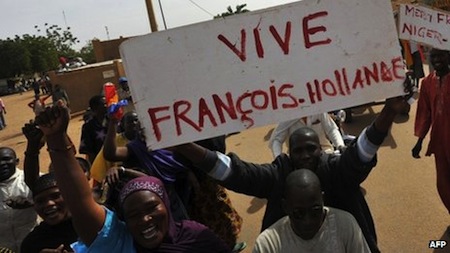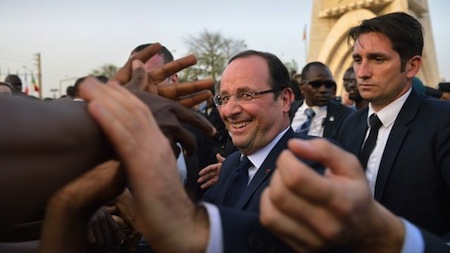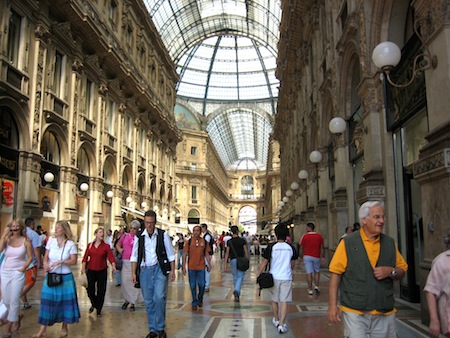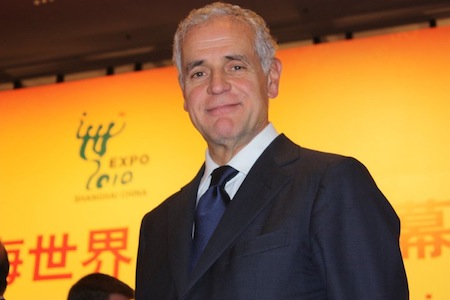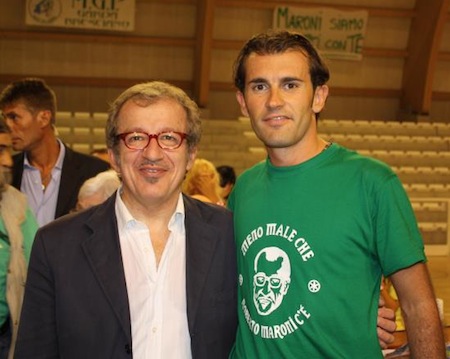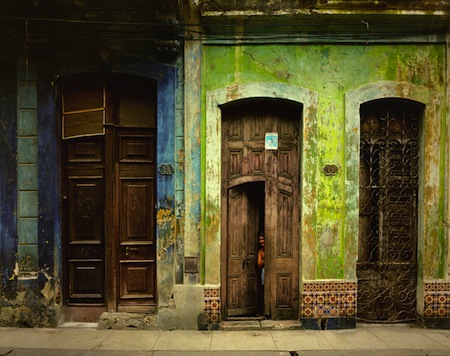Earlier this weekend, French president François Hollande flew to Timbuktu in Mali, where French forces have only in the last week cleared the historic city of Islamist control.![]()
![]()
I was quick to argue that the intervention in Mali wasn’t some neocolonial retreat to Françafrique, and for a three-week military campaign, I’ll be the first to agree that Hollande’s intervention seems to have saved Bamako, Mali’s southern capital, from pending capture — or at least from pressure from Islamist rebels that were quickly closing in on Bamako after locking down control of the northern two-thirds of the country.
But given that the Timbuktu trip had a ‘mission accomplished’ feel to it, after just three weeks of French military effort, I’m not sure whether Hollande will ultimately come to regret such a high-profile event — as former U.S. president George W. Bush learned, prematurely spiking the ball is not smart politics.
For a country that’s often had a troubled post-colonial relationship with its former colonies, especially in north Africa, it’s perhaps an odd thing to see huge crowds of French-speaking Africans praising Hollande over the weekend:
As Mr. Hollande, ringed by security guards, plunged into the crowd to shake hands, some waved banners that said “Papa François, the mysterious city welcomes you.”
“Hollande is our savior,” said Arkia Baby, a 24-year-old college student, who wore a purple batik dress of a style banned by the Islamists. “He gave us back our freedom.”
You might think that Hollande’s success so far in Mali should be helping him at home politically, but budget woes, tax policy and continued economic weakness have nonetheless kept Hollande’s approval ratings incredibly low as he enters only his 10th month in office — only 35% of French voters continue to have confidence in Hollande, opposed to 61% who do not, pursuant to a TNS Sofres poll from January 30.
First and foremost, where does Mali go from here? If and when the French forces leaves, won’t the Islamist and Tuareg rebel forces simply re-emerge from their northern rural enclaves?
In contrast, if French forces really stay long enough to push the more radical Islamist elements out of Mali, won’t they just create a new problem in another country?
Mauritania doesn’t seem like an incredibly bad place for al-Qaeda in the Maghreb to target next.
Given that the French-backed effort to arm rebels in Libya against Muammar Gaddafi might have destabilized Mali by flooding north and west Africa with additional weapons, it’s not too early to wonder if the Mali effort will result in further unintended consequences, like so many falling dominoes. It’s no secret, too, that U.S. aid to the mujahideen in the 1970s and 1980s in Afghanistan empowered the radical Islam that bloomed in the 1990s and turned against the United States by sponsoring al-Qaeda and other terrorist groups and, indirectly, resulted in the current U.S. quagmire in Afghanistan.
So there’s no way to know what follow-on effects the French offensive will have.
And that, of course, is probably a best-case scenario — there’s a risk that France could get stuck fighting an increasingly unpopular stalemate in Mali if it stays. Continue reading François Hollande’s triumphant visit to Timbuktu — and next steps for Mali
